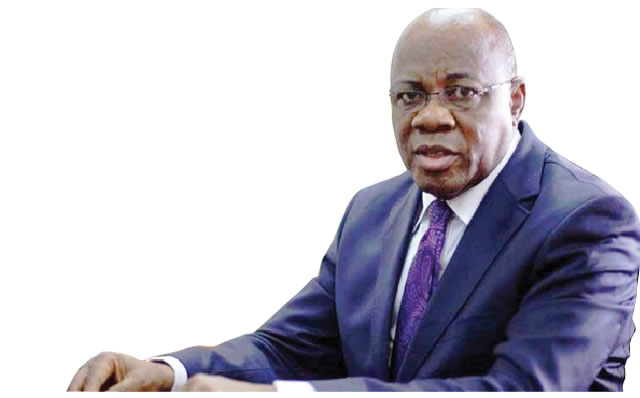
Creating more states won’t solve S’East problems – Agbakoba
Dr. Olisa Agbakoba, a senior advocate in Nigeria, has criticised the push for the formation of new states in the South-East and stated that it will not address the region's issues.
Agbakoba, a former president of the Nigerian Bar Association, stated that the National Assembly should draft a new constitution or change the current one to return Nigeria to regional governance rather than establishing new states.
In a Sunday interview in Lagos with the News Agency of Nigeria, the attorney shared this opinion.
According to NAN, a bill proposing the creation of Etiti State out of the South-East geopolitical zones of Abia, Anambra, Ebonyi, Enugu, and Imo was recently cleared by the House of Representatives for second reading.
Godwin Ogah, Miriam Onuoha, Kama Nkemkama, Princess Nnabuife, and Anayo Onwuegbu all co-sponsored the bill.
Ogah, speaking for Abia State, spearheaded the discussion of the bill's fundamental principles and stated that the creation of Etiti State was a step towards assuring equitable regional development and efficient government rather than merely being a convenient administrative measure.
The member claimed that the bill reflected the values of inclusivity and equity ingrained in the nation's democratic concept and was a response to the desires of the people living in a vital region.
In a same vein, a number of legislators and interested parties have demanded that states in the South-South and South-East form Anioma State.
Senator Ned Nwoko of the PDP-Delta North, who was among those spearheading the call, claimed that the establishment of Anioma State would address what he called the South-East geopolitical zone's marginalisation.
Though the typical South-Easterner would be in favour of another state being created in the area, Agbakoba said in an interview with NAN on Sunday that someone with an eye for the big picture could understand that more states would not necessarily lead to growth.
"This agitation will arise because federal allocation flows are based on the number of states," he stated.
The South-East's five states indicate to them that they are losing money, which is one of their points of view and the emotional source of their agitation.
"But, a realistic developmental point of view that I adopt is this: even if a sixth state is established in the Southeast to provide people a feeling of community, would adding this new state to the existing 36 states advance development?
Will it bring an end to the nation's hunger, insecurity, poverty, and unemployment? Not at all.
"We must switch from creating states to a regional form of government."
Agbakoba clarified that the majority of the 36 states are economically unviable, insolvent, unable to implement infrastructure development, and even unable to pay the proposed minimum wage, which is why he was against adding more states.
"There is no question that the establishment of states during this difficult economic period would result in a rise in the number of ministers, members of the National Assembly, local governments, and other entities, ultimately driving up the cost of governance in the nation.
This is happening at a time when rising food prices are causing the majority of Nigerians to go hungry. In other parts of the nation, terrorists, bandits, and insurgents are kidnapping individuals and holding them ransom.
Therefore, the National Assembly ought to divide the 36 states into six to eight regions, or geopolitical zones, each with a leader, in order to bring the nation back to regionalism.
This implies that in order to implement this plan, the 1999 Nigerian Constitution would either need to be revised or a new one would need to be drafted.
This is because, according to Agbakoba, "new political realities and conundrums have cropped up in the country, making a new constitution for Nigeria has become an overriding imperative."
Human rights campaigner Agbakoba said that regional governments had previously been well governed, with Ahmadu Bello leading the North, Chief Michael Okpara leading the South-East, and Chief Obafemi Awolowo leading the South-West.
According to Agbakoba, Nigeria quit the modernity of regionalism, the states had been unviable, apart from Lagos and Rivers.





